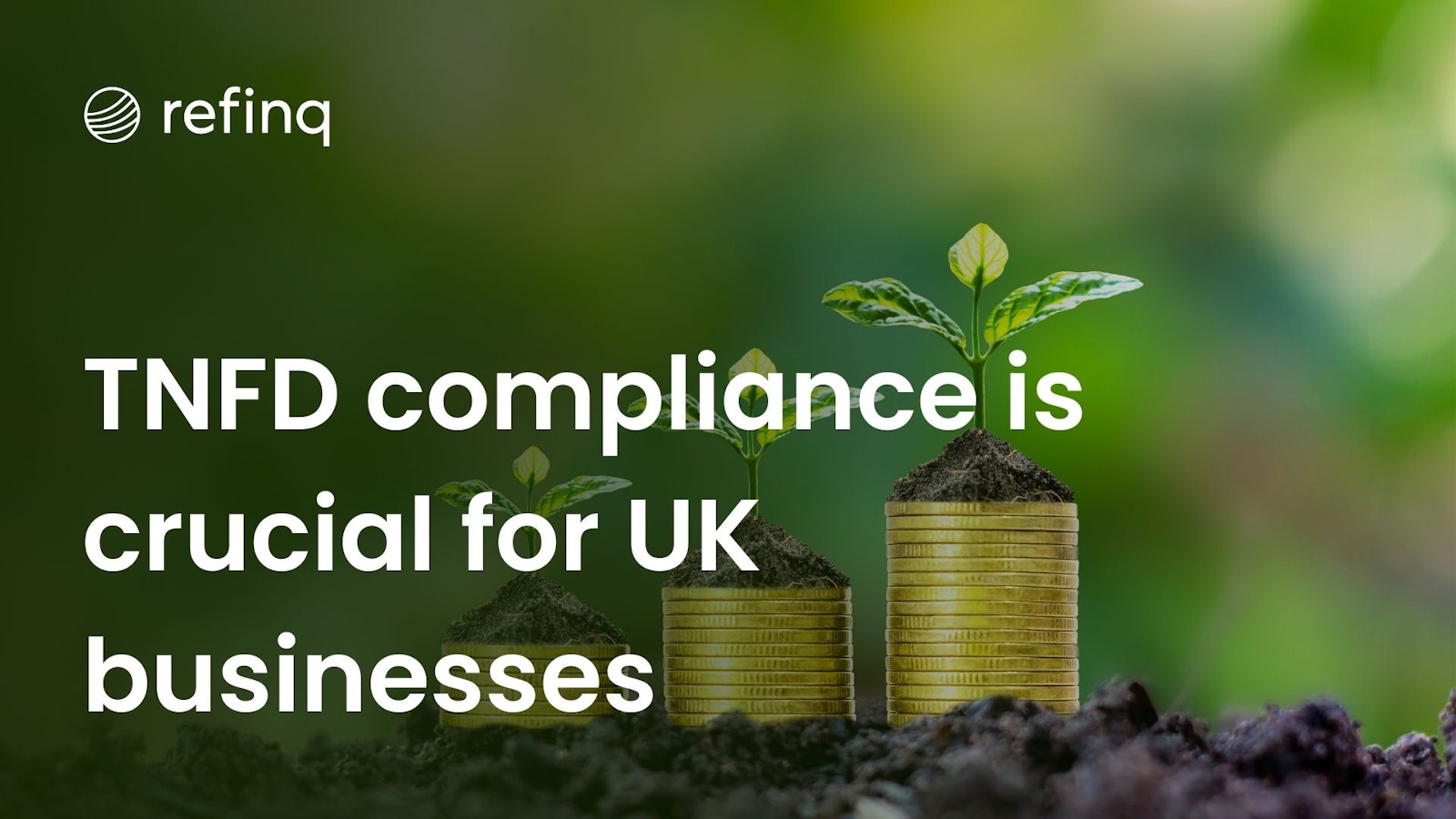

The Taskforce on Nature-related Financial Disclosures (TNFD) has gained significant attention as businesses around the world strive to navigate the complex terrain of sustainability and environmental responsibility. However, one key question remains for many UK-based companies: Is TNFD mandatory in the UK? To understand the answer, we must delve into the current regulatory landscape and explore how businesses can ensure compliance with nature-related risk disclosures. Additionally, platforms like Refinq are playing an essential role in supporting businesses in their compliance journey. In this article, we will explore whether TNFD is mandatory in the UK, and how businesses can align themselves with these evolving regulations.
The TNFD framework was developed to help businesses disclose nature-related risks that could affect their operations and financial performance. While it is not yet a legally mandated framework in many jurisdictions, its adoption is rapidly increasing, particularly among companies that are focused on becoming nature-positive. The UK, known for its rigorous sustainability standards, is closely monitoring developments around TNFD.
In the UK, there is no explicit legal requirement for companies to disclose their nature-related risks using the TNFD framework as of now. However, there is increasing pressure from regulators and the market for companies to adopt such practices. The UK government and financial institutions are strongly encouraging transparency regarding biodiversity and climate-related risks, and the TNFD framework aligns well with these objectives. Many companies are adopting the guidelines to not only meet investor expectations but also to stay ahead of potential future regulatory requirements.
As of now, the UK does not mandate compliance with the TNFD framework. However, businesses are expected to align their reporting practices with several other sustainability-related regulations, such as the UK’s Corporate Sustainability Reporting Standard (CSRS) and the EU’s Corporate Sustainability Reporting Directive (CSRD), which may incorporate elements of TNFD or similar standards in the near future.
While TNFD may not be mandatory yet, companies are increasingly adopting it as part of their sustainability strategies to future-proof their operations. This is because organizations that are proactive in adopting nature-related disclosures stand to gain credibility with investors, customers, and stakeholders. Platforms like Refinq are vital for businesses aiming to stay ahead of these regulations by providing real-time risk assessments and compliance tools for environmental factors like climate change and biodiversity risks. Refinq, for example, helps businesses assess their portfolios' exposure to biodiversity risks, aligning them with international disclosure frameworks like TNFD.
Although TNFD is not yet mandatory in the UK, businesses can start preparing now by using Refinq’s advanced platform. By integrating TNFD’s principles into their risk management strategies, companies can anticipate and mitigate potential environmental risks before they impact their bottom lines.
Refinq enables businesses to evaluate their environmental impact with a granular level of detail, using data integration and geospatial analysis to pinpoint potential risks. For example, businesses can assess the impact of climate change and biodiversity loss on their physical assets by using Refinq to forecast environmental conditions under different climate scenarios.
The platform’s ability to forecast environmental impacts—up to the year 2100—helps companies align with evolving international regulations such as TNFD, which is aimed at increasing corporate accountability and fostering nature-positive strategies. Businesses can use these insights to ensure their operations are aligned with the highest environmental standards.
Although TNFD is not yet mandatory, UK companies can still take the following steps to ensure they align with the framework and stay ahead of potential regulatory changes:
The question of whether TNFD will become mandatory in the UK is not yet fully answered, but the growing pressure from both regulatory bodies and financial markets suggests that it may become a requirement in the near future. Businesses that get ahead of these changes will be well-positioned to thrive in an increasingly environmentally-conscious world.
As the UK government continues to adopt policies that encourage transparency around climate and biodiversity risks, platforms like Refinq will play a crucial role in helping businesses assess and mitigate these risks in real time, ensuring that they are not only compliant with current regulations but also prepared for future requirements.
In conclusion, while TNFD is not yet mandatory in the UK, it is becoming an essential part of sustainability strategies for businesses that want to stay ahead of regulatory changes. By leveraging tools like Refinq, companies can ensure they are well-prepared to address nature-related risks, align with international disclosure frameworks, and create sustainable, nature-positive strategies. As the landscape continues to evolve, staying informed and proactive will be key to success.